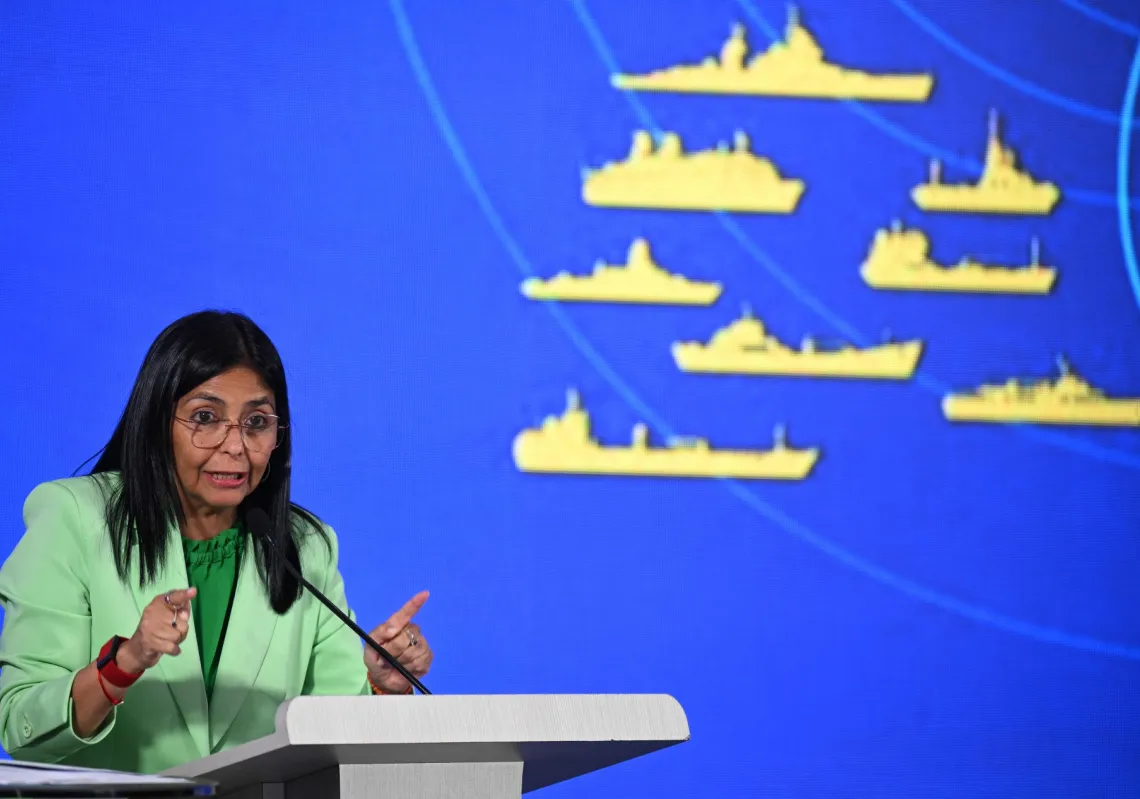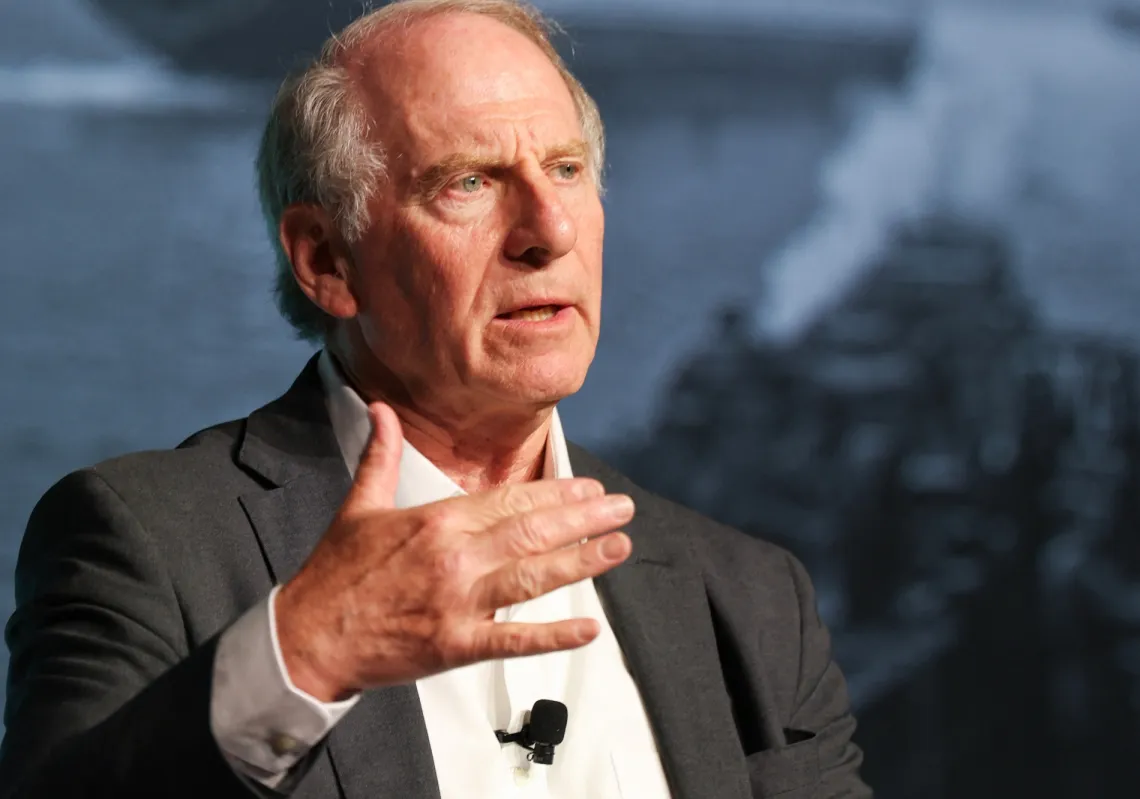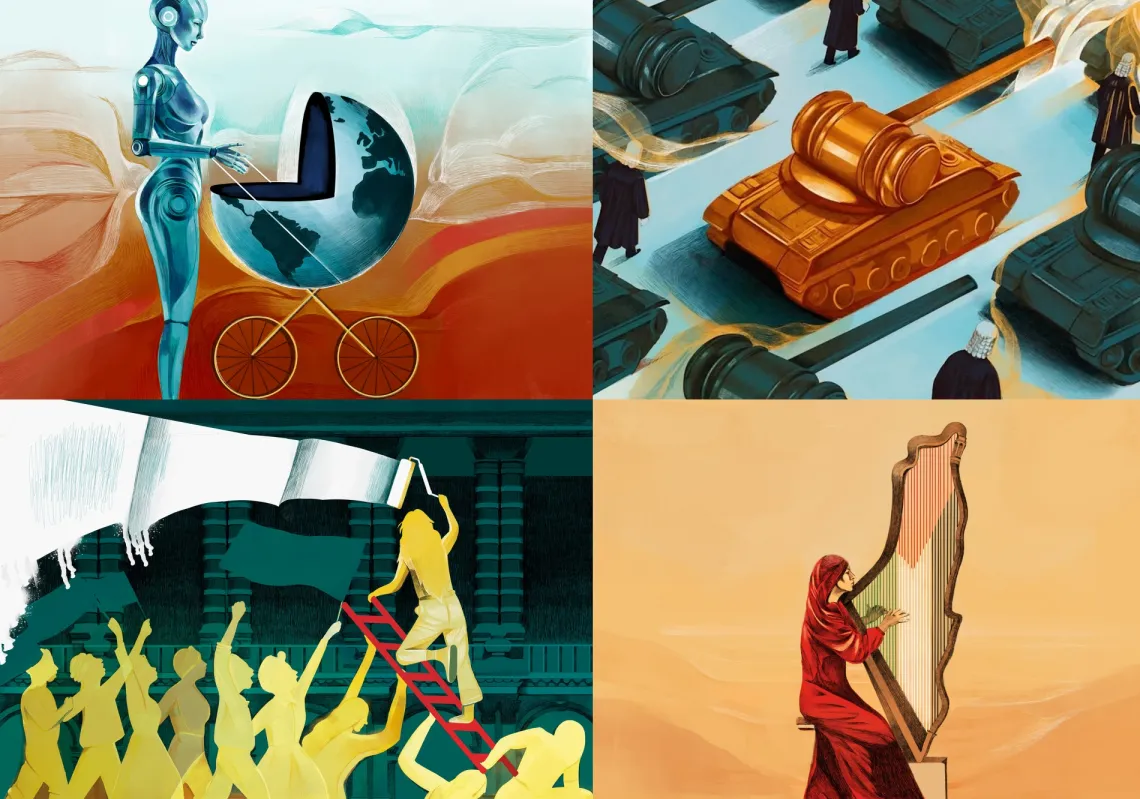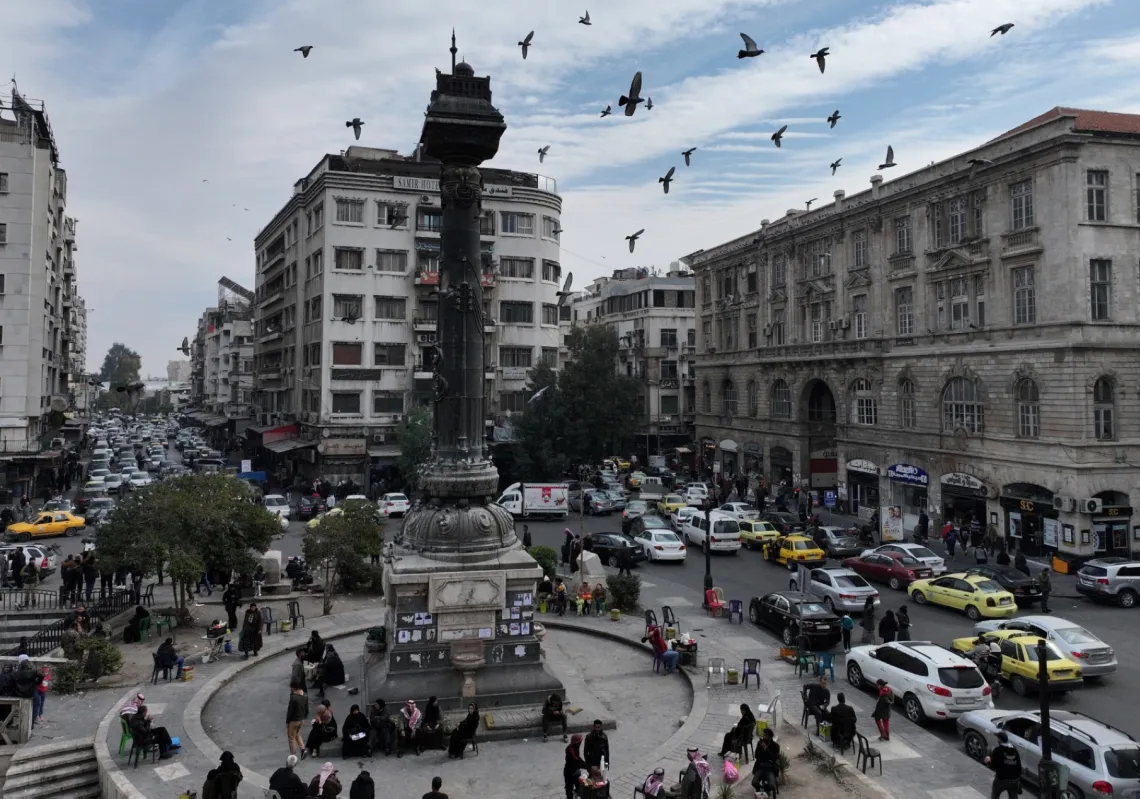Dr Rob Sobhani is a business consultant who specializes in corporate and government relations, and is the President and founder of Caspian Energy Consulting, a firm that deals with projects in the Middle East. Dr Sobhani is also an academic, and was Adjunct Professor at Georgetown University, Washington DC. Dr Sobhani spoke with The Majalla about his recently launched book “King Abdullah of Saudi Arabia: A Leader of Consequence”. Dr Sobhani explains the reason why he decided to embark on this project, and why he thinks this is a crucial book for the Western audience to better understand King Abdullah and his country Saudi Arabia. He spoke about several of the crucial issues that concern Saudi Arabia today—education reform, Saudi nationalism, Iran’s nuclear projects, China’s presence in the Gulf, and Saudi-US relations in the post-Bush era.
The Majalla: Why a book about King Abdullah?
Because I believe, number one, that the American public needs to know who the ruler of Saudi Arabia is, because the ruler of Saudi Arabia today is a leader of consequence, much the same as the President of the United States, the President of Russia, and the President of China. King Abdullah is equal to all these leaders because what King Abdullah does matters to the people of Saudi Arabia, but it also matters to the region, and it also matters to the world.
So I wrote this book because I wanted the American public, but also people in the Western world beyond the American public, to know there is a man called King Abdullah, and if the world wants to solve its problems, it has to work with King Abdullah.
Q: Do you believe your book can help to confront some misconceptions in the US about Saudi Arabia?
I believe in my heart that the American people who are also very generous, and very kind people, if they get this book, if every American receives a copy of this book, it will change their heart, it will change their mind, it will have a significant impact on the way Americans see Saudi Arabia, because they will see the ambassador which is King Abdullah, they will see the representative of Saudi Arabia who is an honest man, they will see Saudi Arabia through the lens of a religious person, of a person that is fighting extremism, of a person who is a peacemaker. This is what the American people will see. So I am convinced, with all my heart, if every American has a copy of this book, it will change their heart, it will change their mind.
Q: How deeply was the US-Saudi relationship affected during the Bush era?
The Bush era obviously was a very tense era. The Bush era was an era where we had the war in Afghanistan, we had the war in Iraq, and we had a war against extremists, and I think this created much misunderstanding, it created a lot of tension, and I believe some of these tensions may still exist. But, in the end, we are responsible, as children of God, to solve problems and King Abdullah, as the custodian of the two holy mosques, and the president of the United States, whether its Clinton, Bush, or Obama, have an obligation to honestly solve problems. And therefore, if we look at it from the perspective where we have a leader like King Abdullah, who will honestly shake your hand and honestly solve a problem, then this is a once in a life time opportunity for America to address some of the key issues in the Middle East, and also some of the broader issues like climate change, like global warming, or homelessness overseas.
Q: Traditionally, the idea of Saudi nationalism has been greatly absent. Why is King Abdullah trying to alter this tendency?
Because I believe that the narrative of Saudi Arabia has always been tied to Islam, which is true, which is the fundamental foundation, but I believe in the West, as the narrative has shifted from a more traditional point of view, to a more patriotic—instead of religious—a more patriotic theme, it has changed the image of Saudi Arabia, and I believe that it is absolutely correct that King Abdullah is emphasizing the patriotism, the nationalism, of Saudi because, first and foremost, we are all the children of God, Saudis as children of God, Americans are children of God, but then we live within borders, and within the borders of Saudi Arabia live the people of Saudi Arabia. And I think King Abdullah, because he loves the Saudi people so much, because he loves the history of Arab culture, because he loves the history that was at one point the envy of the West, that he sees Arab nationalism as going back to the age of wisdom, going back to the age of construction, going back to the age of a Jihad to build and not a Jihad to destroy, and I think this is what King Abdullah wants to achieve to Saudi Arabia.
Q: You use the following quote “Saudi Arabia is probably the only country in the world where the government is pushing for reforms and the people are pulling back”. How has King Abdullah dealt with this?
King Abdullah is facing tremendous obstacles, but he also has the people of Saudi Arabia with him. When I was in Riyadh, and the announcement that Noura Al-Fayez was the Deputy Minister of Education, the joy in the eyes of the women I saw was, for me, unbelievable. And this is only because of King Abdullah. So we have narrow-minded people, not just in Saudi Arabia but in the United States, in the Middle East, everywhere in the world we have narrow minded people, and narrow minded people sometimes they use guns, sometimes they use violence. King Abdullah wants to move Saudi Arabia forward with dialogue, with dignity, with the basics of Islam, true Islam, and that is why he is being opposed by these narrow minded people, because King Abdullah is using the true Islam, the Islam of the prophet, to move Saudi Arabia forward, but his opponents are miss-using and keeping Islam as a hostage, because they do not want to give up power, because for them it is important to keep all their power, and King Abdullah is trying to change that.
Q: There is a deep conservative line amongst Saudi clergy. Do you think they can pose an obstacle towards the reforms King Abdullah wants to implement?
They will try, the conservative element will always try, the conservative element in Saudi Arabia, the conservative element in Iran, the conservative element in the United States, they will always try to stop progress, they will always try to stop modernity. But I go back to my earlier point—King Abdullah’s vision of Arab modernity and Arab nationalism, where the past of Islam and the Arab world is a glorious past, as a past to now in the 21 century to be repeated. So King Abdullah wants a Jihad in building airplanes, not to take airplanes hostage, King Abdullah wants a Jihad to build universities, not to destroy universities, he wants to have a Jihad where every Saudi citizen plays a part in building Saudi Arabia. The conservatives will try to oppose him but I think the people of Saudi Arabia are behind their king.
Q: What makes King Abdullah’s University for Science and Technology such a unique project?
Because it has the blessing of King Abdullah, because as he himself said, it is the house of wisdom, the wisdom to be shared by everyone, but also because it is backed by real financial support, number one. And number two, because it is being ruled by professionals who have built the MITs of the world, the Harvard’s of the world, they have built the Oxfords and the Cambridges of the world, they have built the Georgetown universities of the world, so it is being run by people who truly are interested in modern thinking, in science and in technology. That is why this institution will be the MIT of the region and if not the whole Middle East
Q: Saudi students in the US went from roughly 3,000 to 20,000 in just a few years thanks to King Abdullah’s fellowship programme. How will this change Saudi Arabia?
I believe that the United States still is the greatest economy, it’s one of the greatest countries, and it’s one of the greatest countries because, in America, you still have innovation, you still have people who will find the next cure for cancer, the solution for a solar energy world, the solution to address key issues that many other countries don’t. The fact that King Abdullah has the vision to send Saudi students to America, to learn from what America has to offer, the good things that America has to offer, and take it back to Saudi Arabia so that they can build Saudi Arabia shows the long-term vision of Saudi Arabia. But I would also like to point out that these students will also be the ambassadors, they will also be each one of them, the bridge between my country and Saudi Arabia.
Q: In your book, you characterize King Abdullah’s speech in the December 2005 Summit of the Organization of Islamic Conference as “his most groundbreaking speech”. Why is that?
Because for the first time a king in the region stood up and said honestly what the problem is, and how to solve the problem. Very few leaders in the world are as honest as King Abdullah. King Abdullah stated that Jihad has been taken hostage, but that this is not the true Islam. And that it is important for the true Muslim to stand up, and the only reason why King Abdullah can stand up to the deviant is because he himself is a religious person, he himself is a pious person, and when you are a pious person, when you believe in God, you can stand up to the deviant. And that is why the deviants are afraid of King Abdullah, because he is one ruler who can stand up to the deviants and say “you are wrong, you have to correct yourself, or else”, and no other leader can do that.
Q: In your book you look at King Abdullah’s empowerment of women. How do Saudi women in general perceive King Abdullah’s reforms?
I think that every woman who will want to have a share in the building of Saudi Arabia is excited about King Abdullah, the issue isn’t all boiling down to women’s rising, for my conversations with Saudi women, for my conversations with members of King Abdullah’s family, the women in his family, I got the impression that there is really a full desire on the part of Saudi women to be a partner, an equal partner, in building Saudi Arabia, and that is why they were so happy when they appointed a woman as a Deputy Minister, they were so happy to see Prince Faisal be appointed as the Education Minister, because these are reform-minded people, and it shows that King Abdullah cares about the women of Saudi Arabia, wants the women of Saudi Arabia to be partners in building a better Saudi Arabia for everyone, because I believe firmly that King Abdullah also thinks that an educated mother is the most important gift you can give to society.
Q: King Abdullah has stated that Iran should by no means be attacked. How do you think Saudi Arabia is handling the Iranian nuclear threat?
I believe that the issue of Iran’s nuclear ambitions is an issue that the whole world should be concerned about. When you have a regime in Tehran that uses Islam to kill people, uses Islam to rape and torture its own people, then nuclear weapons in the hands of such a government is a very dangerous thing, not just for Saudi Arabia but for the world. And I believe that it is important for the world to stand by the people of Iran, and by standing by the people of Iran, they will give more courage to the people of Iran to take matters into their own hands, because I believe that the Iranian people are very capable of building their own country, they will be able to create an environment in the Middle East where Iran truly is a friend of Saudi Arabia. And I think that is why King Abdullah wisely as always left the door open for talks, he has wisely talked about the dangers of nuclear arms in the Middle East. Because I believe, from my perspective, from what I gathered from King Abdullah, the King is very concerned about doing the right thing, and a nuclear Iran isn’t good for the region. Iran is a great country with a great civilization, and I believe that the King wants to see this civilization, this people, be positive and have its positive impact on their country and the region.
Q: Saudi oil exports to the US are at an all-time low. How is this related with China’s increasing profile in the region?
I believe that the United States of America will remain the strongest economy in the world. The US economy is a 14 trillion dollars economy versus 4 trillion of the Chinese economy. I believe that China is a rising power, King Abdullah, rightly, correctly, sees China as a strategic partner, as a country that is going to be a consumer of energy, and I believe we should also not read too much into the fact that the United States now is not importing so much oil from Saudi Arabia. US-Saudi relations are not only about energy, the relation between Saudi Arabia and America has grown deeper, it’s a relationship between two people, it’s a relationship that goes back to King Abdul Aziz and President Roosevelt, it is built on economic, cultural, diplomatic, military, and now it is built on solving pressing issues like the Arab-Israeli conflict, like addressing the issue of global warming, and so I believe that whatever focus is on China, there is so much that America and Saudi Arabia are going forward resolving, that the relationship with the United States will still remain a key component of Saudi foreign policy.
Q: Next August will mark the 5 anniversary of King Abdullah’s rule. How would you describe his legacy during these five years?
King Abdullah and his legacy will be remembered by the institutionalization of reform, the institutionalization of reform through the national dialogue forum, through the building of houses of wisdom, through appointing Ministers who are visionary, through giving the private sector in Saudi Arabia more transparency, allowing the Saudi economy to grow at a fast click, and to give every Saudi citizen the chance to be a participant in the building of a better Saudi Arabia, that is the legacy of King Abdullah in my opinion.
Interview conducted by Manuel Almeida








